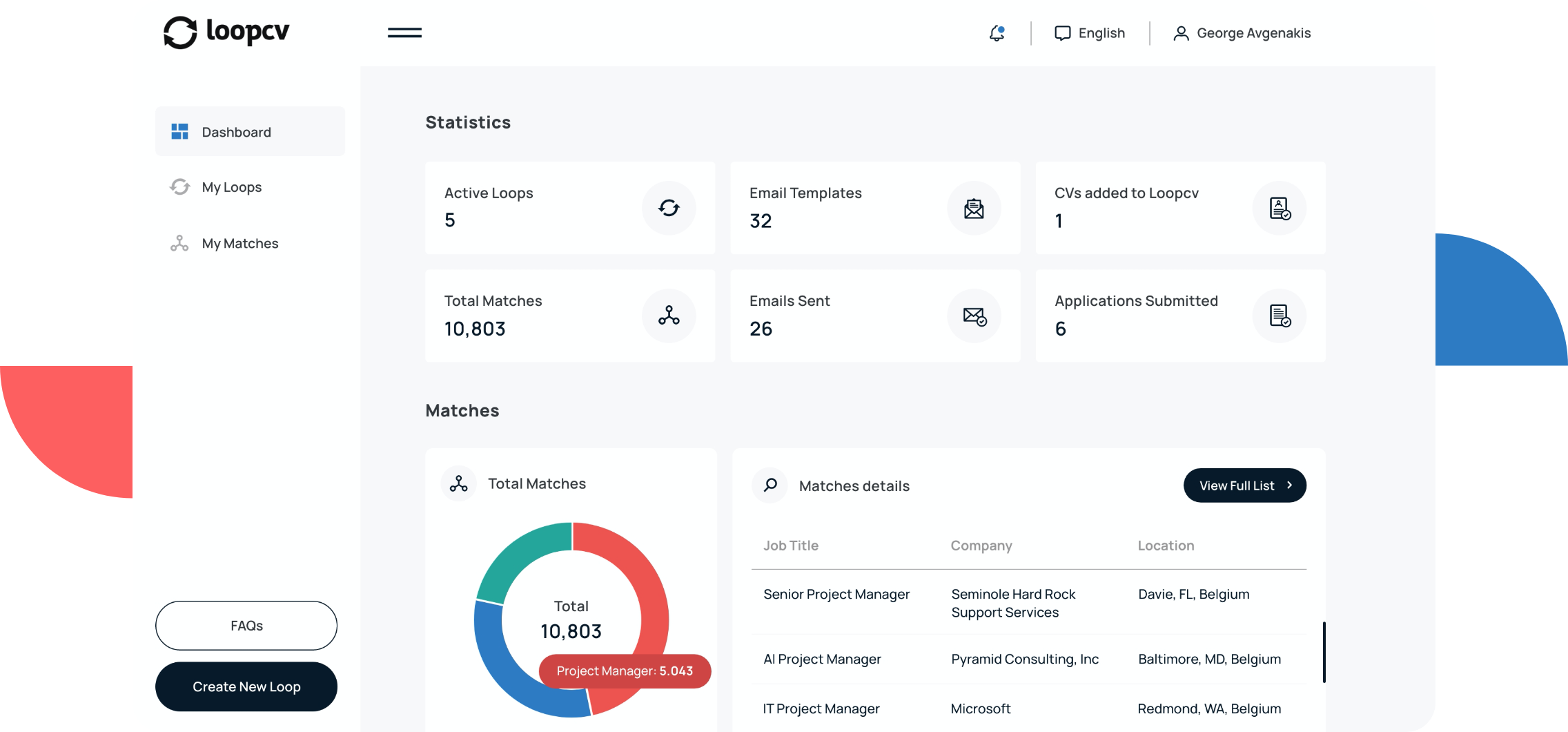What is a job change?
A job change refers to a situation where you are leaving one company and beginning to work for another. The term is a popular one in business and also has application in other fields, from healthcare to human resources to sales.
You may also hear the terms "job transition" or "career change," which are essentially the same thing as a job change. Job changes aren't always easy, though they don't necessarily have to be hard either.
The transition can be made easier by following certain steps and steps that depend on your individual circumstances. This article will help you understand it better and you have a guide for this change to be successful.
The internet has made it easier for people to create business connections. You can find and network with people from your industry on social media and online platforms.
Many decades ago, this was considered impossible, but it is now a huge advantage for those who can harness it.
What do we mean with job change?
First of all, job change is a process different from a career change, unless you are considering a change in both fields.
So, job change is the process you follow in order to accept a promotion within your company and take over new responsibilities and most of the time they contain an increased level of responsibility. The reason is that you are promoted from a lower grade to a higher one.
If it’s not that, then maybe we talk about a reclassification. Meaning a change from one job code and job title to another due to a significant change in the core functionality of a position.
Your job change could also mean a career development. This means that you will take over a different job title and job description in the same level of grade as you currently are.
Finally, there is the option of lateral. Lateral is when you stay in your current job title and job description but in a different department.
So when your manager and HR responsible consider a job change for you, then they are trying to decide which one of the 4 reasons below is the best suited for you.
What is the best reason for job change?
What is it though the best reason for a job change? Taking into account your own perspective. Disclaimer: There is not only one reason for a job change, but numerous. Though there is one which we can consider the best of them.
Firstly, you need to understand in your own pace when is it the best time for you to make that change. You need to break down some reasons.
Epigrammatically, we would advise you to check the working environment and if it has changed to the worse then consider it a good factor. Your mental health is directly affected from your working environment.
Is there any chance in the upcoming days or month to have a promotion or a better compensation? If not even in the upcoming months depending on your returns to the company, then also consider a good factor for a change.
Another one, is your manager or generally the leadership within your company and the fact that you need some high degree people with better leadership style and organisation.
Moreover, perhaps your families circumstances need more attention and therefore more of your time. So a flexible schedule would be better. If that it’s not feasible for your current work then a change is necessary to be done.
A merge or a downsize in your company could be a very good reason in order to reassess your role within the company and find a better position elsewhere.
Finally, our choice for the best reason for a job change, is when you feel unhappy. Let’s be honest, is not easy to make patience with your own feelings and especially when you feel like you need to live for the rest of your working life like that.
Perhaps you have been dissatisfied with your work for a long time. Maybe you have dreamed of a career in another field for years or you may just be ready for change. Once you know "why", it's time to decide "when".
Before making this decision be sure that you have communicate all of your concerns to your boss and perhaps your colleagues. If you can’t agree on any changes that could happen then it’s time to go.
But, if you see that things can change, foe example the working hours, your salary, job description or anything else that concerns you then give it some time for it to happen and see the results.
Proper work - life balance will boost your mood and therefore even more your productivity. Don’t waste time overthinking, instead book a meeting with your boss and plan your next steps.
What should I say for reason for job change?
If you read until now then you are thinking very seriously to make that change in your career. Though you might be wondering how could explain the reason for the job change that you want so much.
At the interview, the interviewer asks many questions. The interviewer's most important question when changing jobs is what is the reason for the change. Don’t worry, we got you!
Your answer will differ based on the reason you will give in your interview.
For example, if you make your job change for a higher pay then an answer could be this: I am passionate about accepting challenges. By accepting challenges and winning awards, I will be working with new energy every day. For me, financial support is in return for my efforts.
In your organisation, you can achieve your financial goals while working in your area of expertise.
If you don’t like the working environment then you could say something like this: In my current work as a (...) in my company I had the opportunity to excel my skills in a particular part of my job description. I feel very confident right when it comes to these skills, but I feel the gap that has been created for the rest of my job description that I haven’t yet applied.
The job description in your company made me understand that I am quite proficient in the skills required and that I could give them a more professional look and take a deeper experience from one of the fastest growing organisations.
If you want more flexible working hours & less time travelling to go for work then your answer could sound like this: I would like a flexible system so that I can take care of my family. The company before me did not allow flexible working hours. So I chose the care of my family.
Also, my current company was very far from where I live. I want to balance work and life, but I can't change my home because my family wants to live there. So I want to be close to my current location so that I can achieve a better balance between work and life.
Finally, if you have been fired then the best explanation for your job change is: My performance at my preceding task became harder for my skills. I gave my best to excel in the skills, however, that job required an extra professional person.
I learned from my mistakes. I recognise my enterprise required a person with extra expertise. I am consequently seeking out a job wherein I may want to supply my best in keeping with my skills.
How do you announce a job change?
An important steps after all the previous matters that we talked about is the way you are going to announce your job change. This is a great chance for you to talk about your previous employers and co-workers.
To mention your strengths, skills and highlight your accomplishments. And of course, for you to explain and make clear your reason for change!
Just follow the simple strategy of: Announce your departure. Make a pause. And announce your new role.
By announcing your departure it’s the right time for you to thank your previous employer and co-workers and state the things you have acquired.
Then a give some time starting in your new role in order to make this announcement. Mention your gratitude to your hiring responsible and your boss for the chance they give you, while don’t forget to state your happiness for your new beginning!
It’s very important for your digital presence to update your job title in all your social media with the most important one being your LinkedIn profile.
How do see yourself in 5 years?
This is a crucial question that defines your direct future plans in your career path. It’s a favourite question for hiring responsible so be prepared mentally and practically for the answer you want to give.
If you're honest with yourself about what really gets the job satisfaction, whether it's a job change or a job change, it's much easier to know what your next step is.
Imagine if you could stay in the same environment for the next five years doing the same thing every day, having the same boss, having the same working hours and transportation.
If that makes you smile, makes you feel safe and your heart and mind are both in favour of this choice, then is the right one for you. But, if that terrifies you then you need to plan your next moves earlier than you might think.
Will your current job give you a chance of promotion, flexibility and a higher compensation? If yes, then it’s positive environment in which you can feel recognised, successful and more productive.
Finally, make this question to yourself: If I Could Do This Work in a Different Environment, Would I Enjoy It?
If it is clear that it is a person, place, thing, not a real job, it may not necessarily be a job change, but a time to change jobs.
Why you need this job?
This question is really about assessing how much you know about the company, its mission, and how the company does business.
Basically, it's another way of saying, "Why do you want to work here?" The interviewer wants to know if you have taken the initiative in investigating the company and why you want to work for the company.
The way to answer to your own self and later on the interview is simple. Take the moment to understand that with this question you actually “sell” yourself.
I have been following the company's successful strategy and mission for many years. Focusing on building relationships between your employees and the surrounding community has brought you success wherever you open an office.
Also, the focus you are giving to your customers, as costumer myself, is something that is missing from your competitors and I admire that a lot. have the same values that I respect very much and believe they would be a great dynamic in your team.
Get help through Loopcv
Loopcv is the first matchmaking platform that offers fully automation on the job search and job application. Loopcv can help you apply to hundreds of jobs every day automatically and the best part is that you don't have to spend time doing all the manual steps that you would normally do in order to apply.

To signup click here: https://app.loopcv.pro/signup



